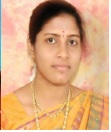The Master of Computer Applications (MCA) programme was started in the year 2007 with an intake of 60 students. The department offers a two years course approved by AICTE, Government of India.
The department is equipped with highly qualified, dynamic faculty members with state of the art laboratories. Periodical seminars, guest lectures, workshops are conducted to enable the students to get exposed to the cutting edge technology, and to face the competitive IT world. High end technologies along with human values are inculcated to produce ideal software professionals and a responsible citizen.
| DATE | STUDENT NAME | EVENT | AWARDS/PRIZES |
| 06.07.19 | Nagaraj | “National Level Hackathon” by ONEYES Technologies @MCE | Third Prize |
| 13.07.19 | Nagaraj | IEEE YESIST12 International Competition Prelims Innovation Challenge @ Panimalar Institute of Technology | Third Prize |
| 06.07.19 | Aishwarya | “National Level Hackathon” by ONEYES Technologies @MCE | Awards |
| 25.07.19 | Aishwarya | National Level Technical workshop by CYPERPUNK | Awards |
| ACADEMIC YEAR | BATCH | COMPANY |
| 2019 | 2019-2021,
2018-2020 |
INFOPARK SYSTEM &
SOLUTIONS PVT. LTD , PARK OFFICE , KOCHI |
| 2018 | 2018-2020 | DSRC, CHENNAI |
| 2018 | 2018-2020, 2017-2019 | JP INFOTECH , PONDICHERY |
| STUDENT NAME | BATCH | RANK |
| Lavanya | 2019-2021 | 14 |
| Yogeswari | 2015-2018 | 37 |
| S.Dhivya | 2014-2017 | 39 |
| R.Gayathri | 2014-2017 | 40 |
| K.Priya | 2013-2016 | 44 |
| K.Tharini | 2013-2016 | 44 |
| V.S.Pavithra | 2012-2015 | 7 |
| M.A.Malini | 2012-2015 | 47 |
| K. Mohana Priya | 2012-2015 | 47 |
| M.Sindhu | 2011 – 2014 | 25 |
| M.Ramya | 2009-2012 | 38 |
2018-2019
| DATE | TOPIC | GUEST SPEAKER | COMPANY/COLLEGE |
| 04.09.19 | Seminar On Cloud Computing | Mr.Arun Kumar -Core Committee Member | Livewire |
| 19.03.19 | Workshop And Handson Training On Python | Mr.Arun Kumar- Core Committee Member | Livewire |
| 05.02.19 | Seminar On Ethical Hacking | Mr.Prabhu M.K -Senior Specialist | Pantech Solution |
| 24.07.19 | Seminar On Hadoop | Mr.Prabhu M.K Senior Specialist | Pantech Solution |
| 27.07.19 | National Level Seminar On Assessment And Accreditation Process | Dr.V.Valli Mayil, Principal, | Palanisamy College Of Arts And Science |
| 31.07.19 | Seminar On Big Data Analytics | Dr.T.Velmurugan, Professor | D.G.Vaishnav College |
2019- 2020
| DATE | TOPIC | GUEST SPEAKER |
| 10.02.20 | Seminar and Training on Java | Mr.Rajander -Core Committee Member |
| 11.02.20 | Seminar and Training on Python | Mr.Rajander -Core Committee Member |
HEAD OF THE DEPARTMENT

Dr.N.Naga Saranya, M.C.A., PhD
hod.mca@mce.edu.in
Vision
MISSION
- To provide adequate forums to develop talents, technological knowledge and analytical ability.
- To enhance students with prerequisite of technical skills.
- To equip students with enduring impact on IT industry.
To infuse students with societal needs and professional ethics.
PEO & PO
PROGRAMME EDUCATIONAL OBJECTIVES (PEOs)
Graduates will be able to:
I. Apply their computing skills to analyse, design and develop innovative software products to meet the industry needs and excel as software professionals.
II. Pursue lifelong learning and do research in the computing field based on solid technical foundations.
III. Communicate and function effectively in teams in multidisciplinary fields within the global, societal and environmental context.
IV. Exhibit professional integrity, ethics and an understanding of responsibility to contribute technical solutions for the sustainable development of society.
PROGRAM OUTCOMES (POs)
PEO 1: An ability to independently carry out research/investigation and development work to solve practical problems
PEO 2: An ability to write and present a substantial technical report/document
PEO 3: Students should be able to demonstrate a degree of mastery over the area as per the specialization of the program. The mastery should be at a level higher than the requirements in the appropriate bachelor program
PEO 4: Able to select suitable data models, appropriate architecture, and platform to implement a system with good performance.
PEO 5: Able to design and integrate various system based components to provide user interactive solutions for various challenges.
6. Able to develop applications for real time environments using existing and upcoming technologies.








